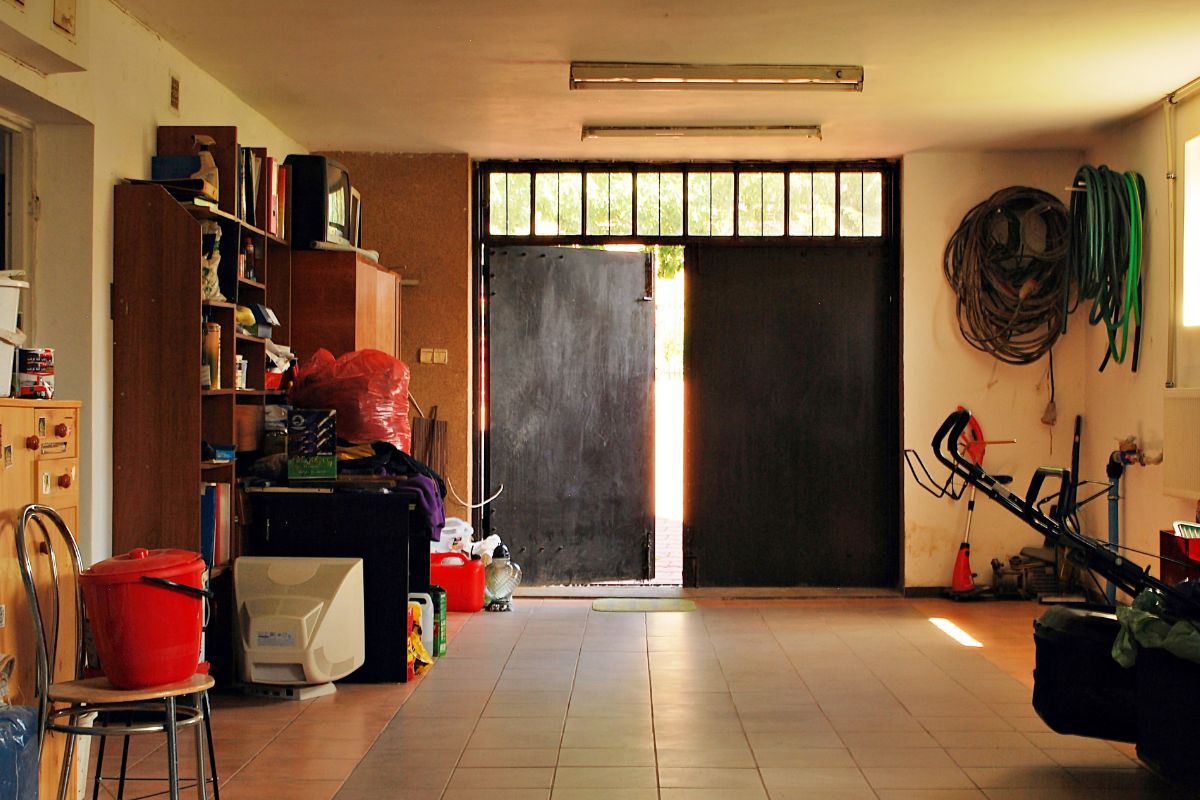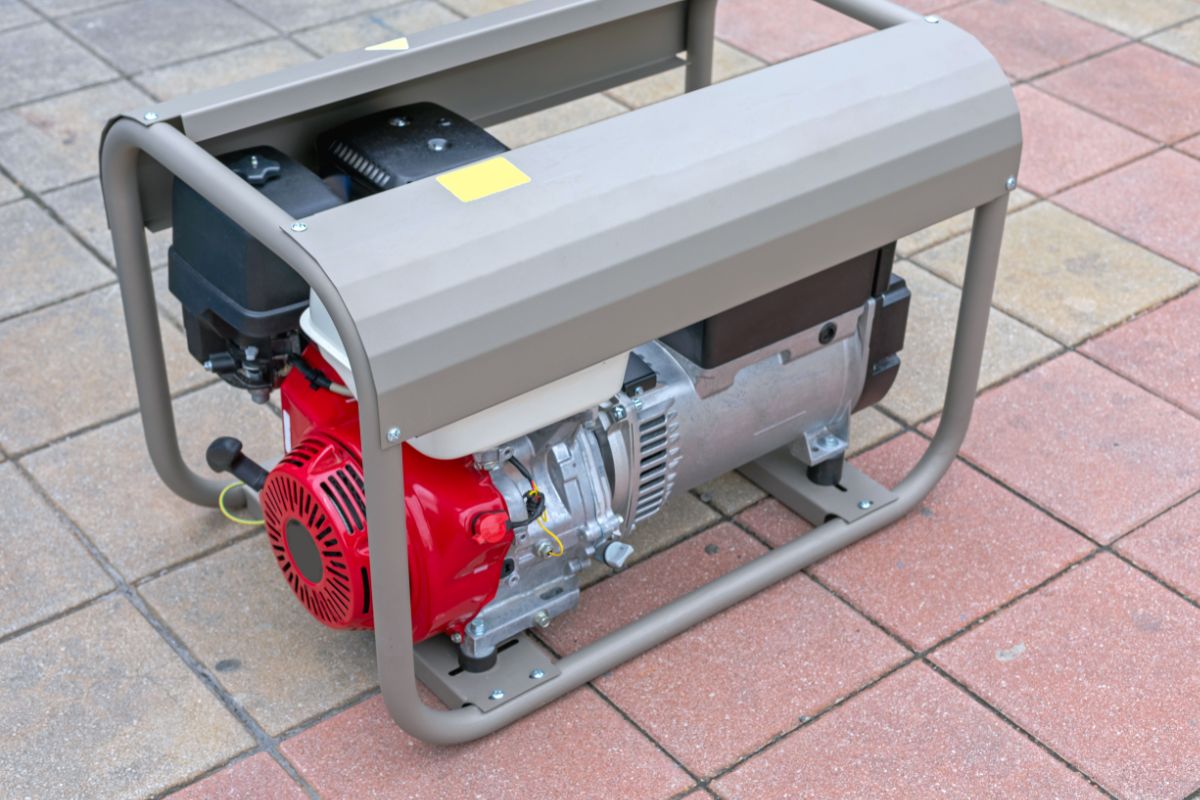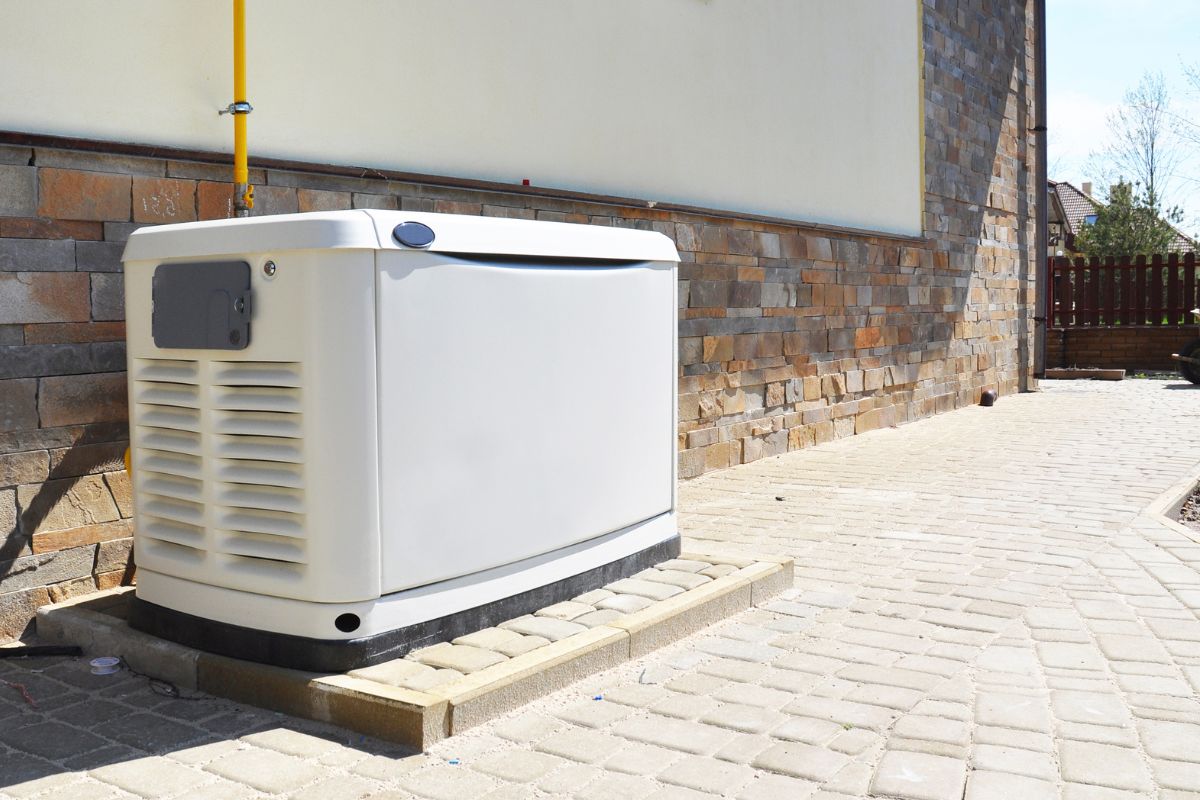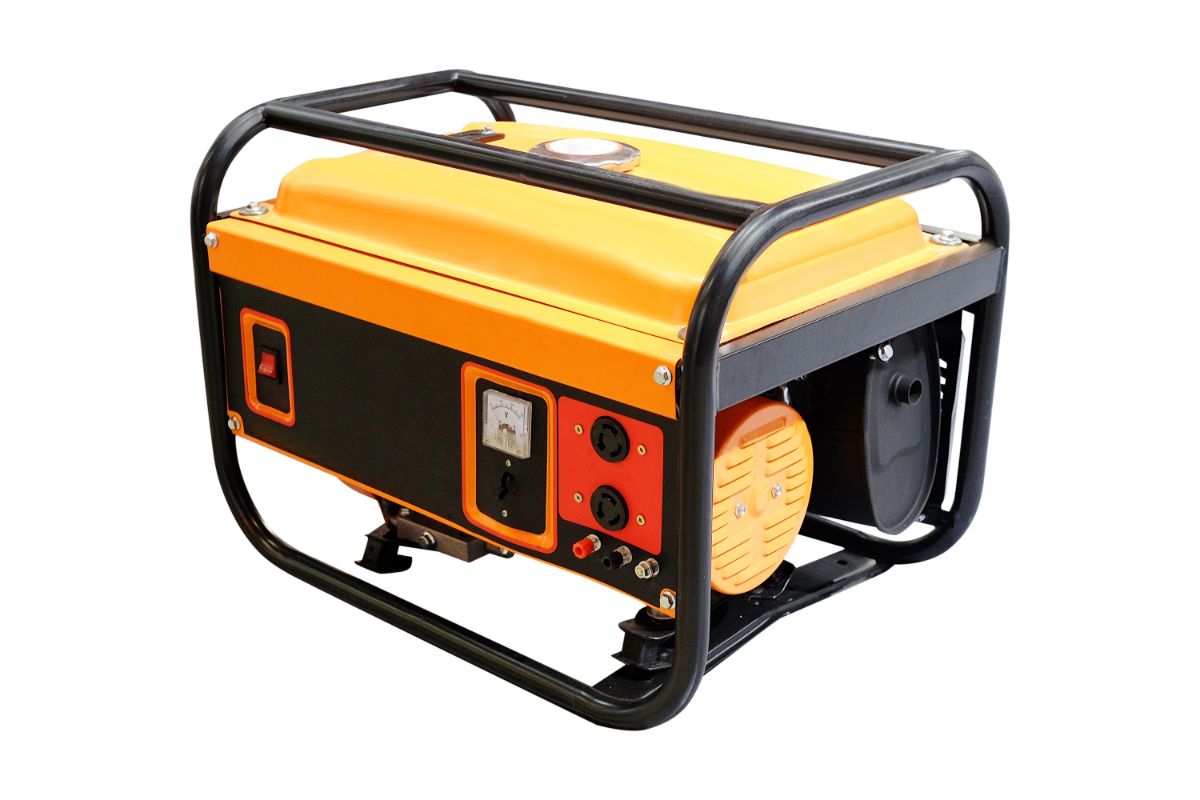Power outages can be a total nightmare in a residential context, but completely catastrophic in a commercial setting, especially if the business in question has particularly tight profit margins.
The moment the power goes caput, you’re hemorrhaging money on staff who are unable to work, products going unsold or expiring, and customers heading elsewhere.

If it’s a particularly lengthy blackout, it could sink your business in one fell swoop, or at the very least, undo all your recent hard work, setting you back months, maybe years in terms of growth. The solution? Investing in a generator built from the ground up to support a commercial enterprise.
Lucky for you and your revenue stream, I’ve been testing numerous commercial-use generators over the past couple of months, and now I’m presenting to you my shortlist of the very best!
Best Generators For Commercial Use: Reviews
OUR TOP PICK
DuroMax XP13000HX Portable Generator
EDITORS CHOICE
EcoFlow Delta Pro Power Station
BEST VALUE
Generac Guardian Standby Generator
OUR TOP PICK
DuroMax XP13000HX Dual-Fuel Portable Generator
Best Non-Backup Commercial Generator
For most small businesses, something like this DuroMax beast will be all that’s required. Granted, it doesn’t technically fit into the commercial-grade category, but it’s more than capable of shouldering some mighty loads and keeping things going when grid power isn’t an option.
Being that it has wheels built into the frame and it’s relatively light, it’s ideal for those who like to insure themselves with a backup on predictable dates.
For instance, if you know trouble might arise during hurricane season, you can roll it out and bring it to work with you, then, once the weather settles, it can easily be stored off-site, saving valuable workspace.
It’s a little on the noisy side, but as long as you station it far enough away, it shouldn’t be a bother, and thanks to the dual-fuel design, you’ll never be unable to find fuel, even in emergency situations, keeping your business alive while others sputter out.
Maxing out at 1300 watts, it packs a mighty punch for its size, and if you invest in two, you’ll most likely be able to power your entire business.
Pros
- 13,000 watts — Awesome output-to-size ratio keeps the lights on without hogging too much valuable space
- Portable — No need to take up commercial space when not needed
- Electric start — Not automatic, but easy and lightning quick
Cons
- Output — Not powerful enough for entire business (but two will be!)
Also available at: Mowersatjacks
EDITORS CHOICE
EcoFlow Delta Pro Power Station
Best For Small Businesses
Got a small business facility in and out of which space is running a premium? Forget the super expensive, bulky standby generators out there, and pick yourself up a Delta Pro.
As a battery powered generator, it can be used indoors, so it’s not a problem if you don’t own any exterior property to house an unwieldy stationary unit.
And if you do have some outdoor space to work with, you can expand your system with gasoline smart generators, meaning this backup solution will grow alongside your business, so you won’t have to invest in a new system for many, many years.
It’s also solar-enabled, so if you get some good sun in your area, you can keep your business running on green energy, something you could advertise to pull in more environmentally conscious clients.
Maxing out at 3500 watts, it’s unlikely to keep every single cog in your operation turning, but it will certainly keep the core of your enterprise alive and well, minimizing the impact of a blackout on your profit margins.
Pros
- Battery powered — Works indoors, so you won’t need outdoor land to use it
- Solar-enabled — Run your business on clean energy.
- Portable — Setting it up or storing it is a total breeze.
Cons
- Price — On a dollar-per-watt ratio, it’s a pretty steep investment.
Also available at: EcoFlow
BEST VALUE
Generac Guardian Standby Generator
Best Commercial Generator
The Generac Guardian lives up to its name by providing a whopping 24,000 watts, transforming your business into a beacon in the darkness, both literally and figuratively, but it’s not just a generator.
The PWRview system monitors and manages electricity usage in the facility, highlighting all the facets of your business that aren’t as efficient as they could be. During my tests, I found that streamlining these inefficiencies can cut expenditures significantly, meaning it pays for itself in no time.
Despite its impressive output, it’s also amazingly small compared to similar generators, making it an awesome choice for small business environments in which space is at a premium.
To top it off, Wi-Fi capabilities make monitoring performance as simple as can be, meaning you can focus on the day-to-day running of your business rather than flitting back and forth between your duties and the generator.
Pros
- 24,000 watts — Powerful enough to run a moderately sized business facility
- PWRview technology — Energy monitoring system can bring utility bills down by 20%.
- Compact — Roughly 70% smaller than products with comparable specs
- Wi-Fi enabled — Monitor and control it remotely so you don’t have to divert too much focus from the inner workings of your business.
Cons
- Stationary — You’ll have to factor installation costs into your budget.
Also available at: Nationwidegenerators
RUNNER UP
Generac 70432 Guardian Standby Generator
Best Backup On A Budget
The 70432 is simply a step-down from the previous Generac generator in the Guardian series.
With an output of 22,000 watts, it’s not quite as beefy as the top-of-the-range model, but it’s also significantly cheaper, so if you’re looking for comprehensive backup, but not “24K comprehensive”, this is a fantastic alternative!
And besides this dip in power, it basically arrives with all the same perks. It gets plumbed into your natural gas pipeline, so you can forget about refills and focus on your business, and the on-unit LCD makes for seamless, user-friendly operation.
Much like its bigger brother, the 70432 can be used in conjunction with a partner app, sending real-time updates directly to your phone, so you can monitor performance remotely from anywhere in your facility, saving precious time and energy.
Best of all, loaded with TruePower technology, the output is as smooth as can be, and during my tests, I found it can run a number of sensitive electronics without any hiccups whatsoever, so if computing is a big part of your business, you’ll be in safe hands!
Pros
- 22,000 watts — Epic power for keeping a small business facility running at full capacity.
- Remote monitoring — Fit performance monitoring seamlessly into your workflow and maintain personal productivity.
- Compact — Even smaller than its impressively compact bigger brother, saving valuable space.
Cons
- Stationary — Can’t be transported site to site, so best for single-location businesses.
Also available at: Samsclub
RUNNER UP
Champion 100177 Standby Generator
Quietest Backup Generator
The sound-attenuating enclosure of this Champion combined with the low-tone muffler keeps both vibration and noise to an absolute minimum. It’ll keep your business liveable and productive for employees and pleasant for customers.
Purring away at a very impressive 59.5 dBA, which, by the way, is quieter than normal conversation, this generator won’t hinder productivity in the slightest, ensuring your business runs like a well-oiled machine, even when grid power lets you down.
It’s also a dual fuel model, so while other business backups run out of juice due to shortages, yours will keep on keeping on, and guess where the customers of those other businesses will end up — Funneling straight into your business, that’s where!
Essentially, what I’m saying here is that with this generator, not only can you survive a blackout, you can actually make it pay!
Depending on the scale of your enterprise, 8500 watts will probably only cover the essentials, so don’t expect your facility to be lit up like a Christmas tree, but during my tests, I found it has impeccable thermal insulation.
When other businesses grind to a halt, the core of your business lives on no matter how extreme the weather gets.
Pros
- 59.5 dBA — Quiet running volume doesn’t harm productivity.
- Thermal Insulation — Works perfectly well in sub-zero temperatures and extreme heat.
- Dual fuel — Don’t worry if propane supplies run low!
Cons
- Output — Respectable, but won’t run an entire facility
Also available at: Norwallpowersystems
Buyer’s Guide
Picking out a generator is never an easy task, especially when you’ve got so much riding on its performance when calamity strikes, so let’s take a look at all the things you should keep in mind when shopping around.
Output
Your first query is likely to do with how much power you’ll need to keep your business afloat when grid power goes down. Unfortunately, I can’t give you any precise answer here, as only you have the details to figure it out. I can, however, help you make a rough estimate.
Ask yourself how much power you really need to keep your outfit ticking over when the lights go out. Do you need to power a full building, or perhaps just some computer systems? Maybe you own a mobile food truck and you just need to keep the lights on, the fryer fryin’, and the burners burnin’.
Once you’ve made a priority list of electronic applications, use an online energy use calculator to determine how much power you’d need overall, then simply find a generator with enough muscle to carry operations as and when it’s needed.
Don’t forget to account for the difference between consistent and start-up wattage. It takes more power to fire things up than it does to keep them going after they’re started, so you’ll need to account for both capacities when selecting your generator.
Fuel Type
Your options are four-fold when it comes to fuel type…
- Gasoline
- Diesel
- Propane
- Natural Gas
Gasoline
Gasoline can be quite affordable, but if the blackout impacting your business is widespread, panic buying can leave supplies pretty scarce and prices through the roof. That said, the volatility of gasoline gives the corresponding generator a higher wattage.
Diesel
Diesel is an affordable alternative to gasoline, and it’s easy to deliver and store, but prices can go up during emergencies.
Propane
Propane has a stable price, so although it’s a more expensive option most of the time, it becomes the more economical choice when gas and diesel supplies run short. It also has a number of other benefits, such as having a ridiculously long shelf-life.
Natural Gas
Natural gas has a couple of fantastic things going for it. First, these generators can provide very stable power, making them a safe bet for mission-critical applications. And secondly, as they’re plumbed into the natural gas line, they never need a refill!
Stationary (Stand-By) Vs. Portable
Typically speaking, stationary generators are used for commercial applications, but that’s not to say you have to follow suit. Certain smaller businesses will function perfectly well with a beefy portable generator; however, there are a few other factors to consider before making your decision.
Portable generators may be far more affordable, and they don’t need to be installed, but they also may not be onsite when you need them. In an emergency, transporting them may take longer than usual, and as they say… Time is money!
They’re also a little temperamental in terms of output, so they’re not always suitable for use with sensitive electronics, and they can’t be used in the rain.
Stationary stand-by generators, by contrast, are installed outside on your commercial property, lying in wait to jump in the second they’re needed, making them an invaluable backup plan.
They also have their downside, though, the most notable of which is their price tag; these things are serious investments!
Single- Vs. Three-Phase Generators
Put simply, three-phase generators are more appropriate for most commercial applications due to the incredible stability of their output, but a standby generator has to match the current type the utility company supplies.
So, if three-phase sounds better for your business, but you currently receive single-phase from the grid, it’s best to contact the provider before purchasing your generator.
Running Volume
A quiet work environment is key for employee wellbeing and focus, and if customers are going to be dropping in, providing a quality client experience is paramount to your success. Choosing a generator with suitable sound-damping qualities will help keep everyone happy and your business working like a well-oiled machine.
Best Generators For Commercial Use: Frequently Asked Questions
What Is A Commercial-Grade Generator?
Strictly speaking, to be classed as a commercial-grade generator, it has to be a stationary backup unit with tons of power, but, as you can tell from my list, there are a number of more affordable commercial power solutions in the portable category too.
The stability of the output also plays a role in the classification process. Running everyday appliances isn’t all that demanding in terms of current type, but when you’re running an entire business of electronics, some of which are highly sensitive to power fluctuations, stability is critical.
How Many Commercial-Grade Generators Will I Need?
How many generators you’ll need depends entirely on the industry you’re in, what you want to back up, and the size of your operation. For small outfits, one portable generator may be just the ticket, while for more expansive companies, one generator won’t suffice, no matter how impressive it is. You may end up needing multiple stationary generators to keep the cogs turning when the power goes out.
How Much Is A Commercial-Grade Generator?
Generators that officially fall into this top category are mighty expensive — we’re talking between $7 and $20K. But, depending on the size of your company, that may be mere pennies compared to the numbers you do on a daily basis, so they’re a safe investment that’ll pay for themselves pretty quickly in the event of a blackout.
What Generator Is Best For Small Businesses?
For particularly small businesses, I’d recommend a large portable unit with sufficient sound-damping facilities, so you can keep the lights on without scaring away both your staff and your customers.
A modest stationary unit may also be a good choice if there is space on the property for installation, especially if you have a lot of sensitive equipment to power.
How Do I Calculate What Size Generator I Need?
A popular calculation method for retail and restaurant spaces is to simply start with a base output of 50 kW, then add 10 watts for every square foot. You can apply this space-based calculation to other smaller commercial applications by adding 5 watts per square foot instead of 10.
For a quick estimate of the power, you’ll need to back up a larger enterprise, check out your past utility bills and take note of the peak energy draw month to month. Take the highest peak demand from the previous year, tack on an additional 25% to give yourself a bit of headroom, and voilà; that’s your answer.
If that sounds a little bit too vague for you, you can get more hands-on with the following real-time measurement:
- Use ammeter clamps to measure the power draw of each leg of the energy service, then add the measurements together. This will give you the sum total amps your facility needs to function as normal.
- If you’re going for a three-phase unit, divide this total by three, and if you’re going for a single-phase unit, divide this total by two.
- Take your divided total and multiply it by your supply voltage.
- Multiply the new total by 1000, and you’re left with the kilowatts you need to run your business.
Final Thoughts
Can generators be pricey? Yes, absolutely, but the one-time fee you pay out for a backup pales in comparison to the potential losses of halting all operations for the length of an entire outage.
Don’t let the next blackout botch your business strategies. Buy one of these magnificent units to shoulder the load when the lights go out, and your future will be brighter than ever!











